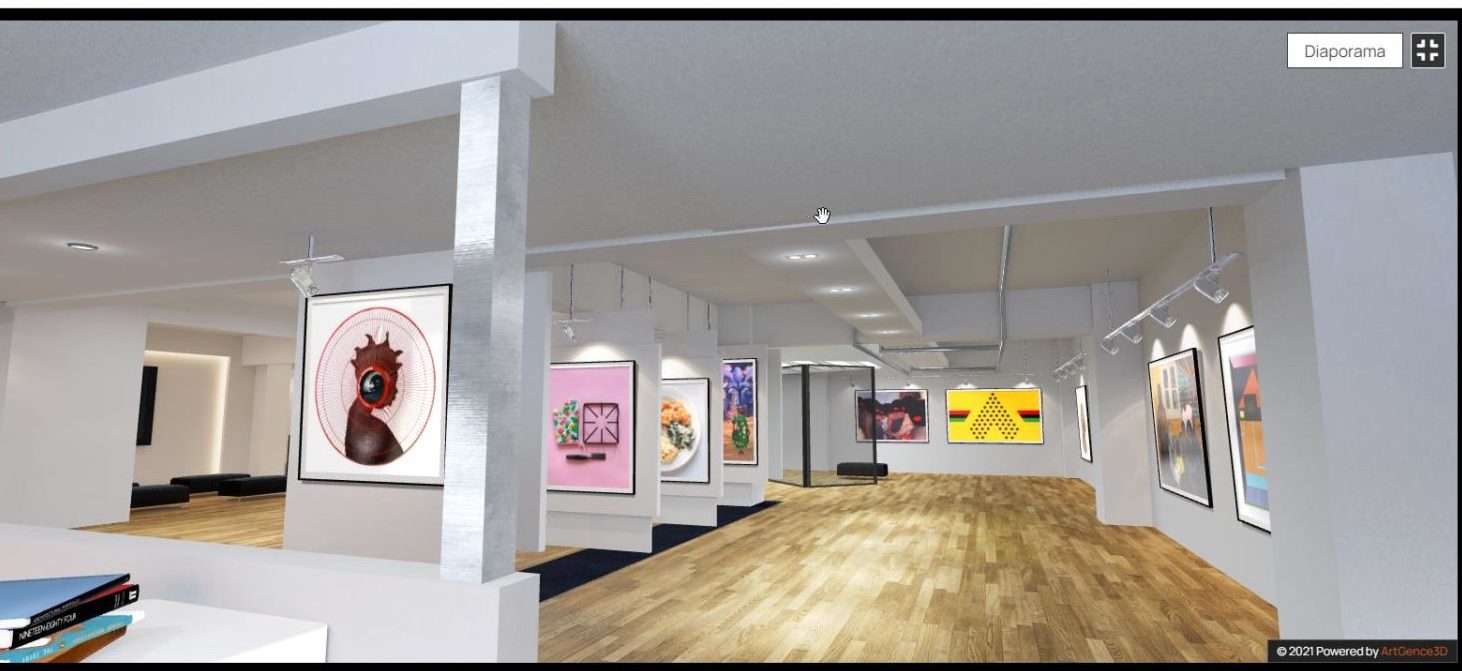Les équipes de Next Level Com & Artgence sont fières d’avoir réalisé la première exposition virtuelle en 3D pour le MoCADA,
Le Museum of Contemporary African Diasporan Arts ou MoCADA (Musée des arts contemporains de la diaspora africaine) est un musée américain, fondé en 1999 par Laurie Cumbo à Brooklyn (New York), qui utilise les arts visuels et les arts de la scène pour faire découvrir les contributions artistiques contemporaines de la diaspora africaine.
Visitez l’ exposition en 3D :
https://3d.mocada.org/
A propos de l’exposition :
A virtual exhibition curated by Maleke Glee + Amy Andrieux (Executive Director of MoCADA).
Presented by the Museum of Contemporary African Diasporan Arts (MoCADA)
Featuring the works of:
Ndidi Emefiele, Evan Ifekoya, Jacolby Satterwhite, Shellyne Rodriguez, Larry Achiampong, Raelis Vasquez, Jessi Jumanji, Jamaal Peterman, E. Jane, Alexis Chivir-ter Tsegba, Zola Savage, Ken Nwadiogbu, Emmanuel Massillon, Melvin Nesbitt Jr., Nakeya Brown, and Lionel Frazier White III
The Cookout: Kinfolk and Other Intimacies is a celebration of African Diasporan traditions of gathering, particularly ways of togetherness that maintain history, culture, and ritual through active participation. The cookout can and does often represent a myriad of social experiences vital to cultural continuity and collective survival. The featured works live across various mediums to explore tradition, family, national and personal memories, memorial ritual, gender and sexuality, childhood, and acts of leisure and pleasure. The works demark a moment and occupy the future simultaneously. This exhibition acknowledges the grand potential of Pan African connection, affording traced shared histories through cultural remnants. In the last decade, the relics of this living document, the cookout, are shared on the internet in memes, tweets, and snapshots of the quotidian. The digital realm, particularly its increased relevance during a global pandemic, prompts new concerns and possibilities about the ontology of participatory heritage.




